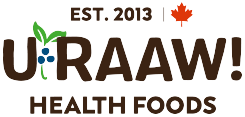The Best and Worst Foods for IBS
IBS stands for Irritable Bowel Syndrome - a condition that affects your gastrointestinal tract. Although around 45 million people suffer from IBS in the U.S. alone, the exact cause of IBS is still unknown. Some doctors suspect that IBS is related to a defect in the nerves connecting the brain to the digestive tract.
So how do you know if you have IBS? Characteristic symptoms include severe diarrhea, constipation, and stomach pains. Not to mention that people with IBS usually also have to deal with bloating, excessive gas, and sometimes even nausea. The difficult thing about IBS is how inconsistent it is. It can seem impossible to trace symptoms back to one particular type of food.
However, there are a few foods that have been known to exacerbate the symptoms of IBS.
Foods to Avoid if You Have IBS:
- Broccoli (and other fibrous vegetables like cauliflower & cabbage)
- Red & green peppers
- Corn
- Beans & lentils
- Dairy (specifically butter, milk & cheese)
- Garlic & onions
- Foods with fructose
- Gluten containing breads & pasta
- Spicy foods
- Caffeine or alcohol
Irritable bowel syndrome is completely unique to everyone who has it. There is good news and bad news when it comes to this GI disease. The bad news is that IBS is typically a lifelong condition. The good news is that there are ways to manage it, and lots of foods you can eat to help reduce symptoms.
So What Can You Eat?
Here are a few of the best foods you can eat if you are dealing with IBS:
- Lean meats (chicken, turkey, lean beef)
- Eggs
- Fish
- Low FODMAP vegetables & fruits
- Nuts & seeds
- Fermented foods (probiotics are great for reducing IBS symptoms)
- Lactose-free dairy alternatives
While looking at these food lists, it is important to keep in mind that IBS is a very individual disease. This means that trigger foods will vary from person to person. In general, the majority of people with IBS benefit from eating a diet high in fibre and avoiding foods that have been overly packaged or fried.
Eating more frequent, smaller meals throughout the day has also proven to be beneficial. Perhaps one of the most effective things you can do to help manage your IBS is to eat a low FODMAP diet. Check out more about FODMAPs here.
Dealing with IBS is definitely daunting, like many other digestive conditions. It may seem like your diet has to be extremely limited in order to avoid the uncomfortable symptoms associated with IBS.
In reality, learning to eat a IBS friendly diet takes time, but is worth! Once you get accustomed to cooking with foods that work well for your individual body, it will become a sustainable habit. What are your favourite IBS friendly meals and snacks?


